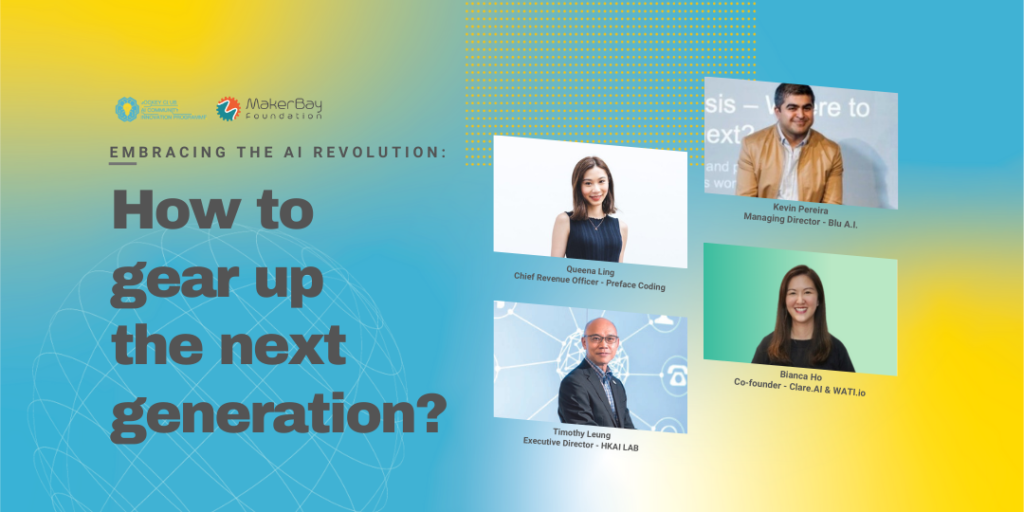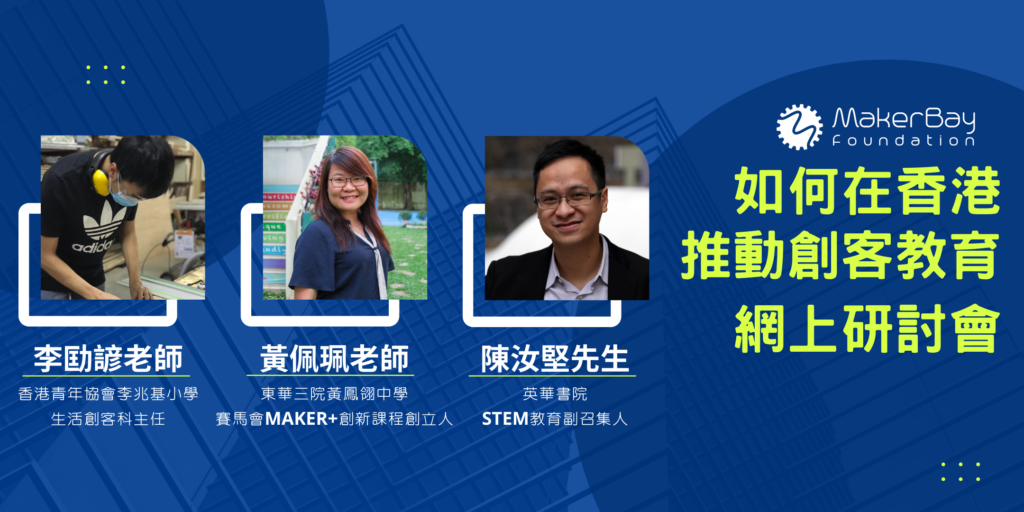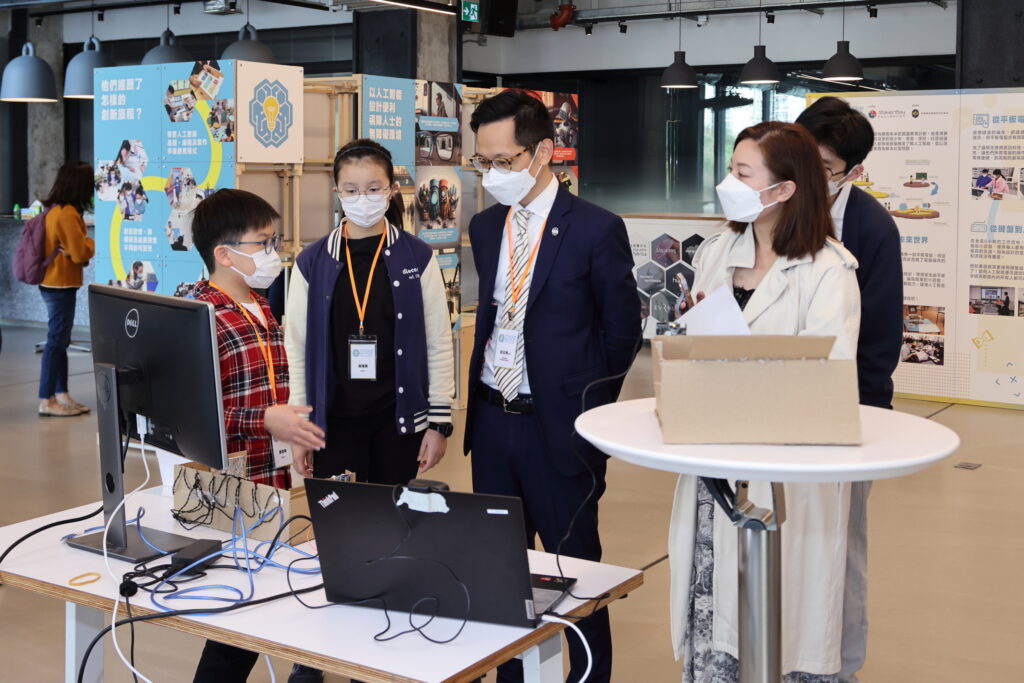Embracing the AI Revolution: How to gear up the next generation?

Over the past decade, Artificial Intelligence (AI) has become an integral part of our lives and is bringing significant changes to the world. It has been creeping into every aspect of life with more and more widespread applications, such as self-driving cars and smart homes. AI literacy, as a result, is undoubtedly something important and essential for the next generation to thrive in the new digital age.
In view of this, Makerbay Foundation held a panel discussion “Embracing the AI Revolution: How to gear up the next generation?” on 7 March 2022 as part of the Jockey Club AI Community Innovation Programme to review the current development of the AI community in Hong Kong as well as to discuss how we can help our next generation to get prepared for the digital revolution through AI education.
It was our honor to invite 4 speakers from the AI community, who are the leaders in information technology, AI and EdTech. They were:
- Mr. Timothy Leung, Executive Director of the HKAI Lab;
- Ms. Queena Ling, Chief Revenue Officer at Preface Coding;
- Mr. Kevin Pereira, Managing Director for Blu Artificial Intelligence;
- Ms. Bianca Ho, Co-founder and COO of Clare.AI and WATI.io.

Our speakers generously shared their experience and insights with everyone during the event and we had an inspiring discussion on the current situation and opportunities of AI in Hong Kong, mentality of using AI and roles of different stakeholders in AI education.
Current situation and opportunities of AI in Hong Kong
Currently, the ecosystem of AI in Hong Kong is not yet complete, but it is good to see that there is a growing trend of AI startups and that the technology is being applied to different market segments. As a whole, we are still at an early stage for the commercial use of the technology, and there is a shortage of skilled talents to further drive AI innovations in Hong Kong.
Nevertheless, the outbreak of COVID-19 has actually increased the incentives for digital transformation and the use of AI. Online meetings and courses have become parts of our daily lives, creating lots of opportunities. In the future, we can foresee that AI is going to be everywhere, from businesses to daily life, with people showing more willingness to change and embrace AI. It will become a fundamental technology and be applied into not only the technology sector but every industry, including the commercial world, entrepreneur space and academia.
Mentality of using AI
Misconceptions and misperceptions of AI technology exist among the public. While AI is a good tool to take up some of our manual work like data processing, it is important to raise public awareness on ways to utilize AI and distinguish the roles between human and AI that it will be difficult for AI to replace humans in tasks that require abilities unique to us like creativity. In other words, AI is humans’ partner that complement us in our work in different aspects, but it is also essential to first identify the objectives of applying AI in business models before actual implementation.
Another point to note is that embracing AI is not all about learning technical knowledge such as coding and programming. People with different backgrounds, professions or expertise can all play a part in the AI revolution and leverage the technology in the best possible way.
AI education and roles of different stakeholders
AI education is critical in nurturing skilled talents for our society. It should start at an early age to let children get a taste of AI. If they can learn and play with AI in a stress-free environment where they are given chances to actually apply the technology, this will give them a sense of satisfaction, which will further become a motivation to learn and become involved.
Not only does AI education help address common misunderstandings people have towards AI and change their perspectives, but it can also help students explore more career possibilities by equipping them with transferable skills and mindsets that can be applied to various industries. Learning AI gives them a competitive edge in their career path, differentiating them from the others. To promote AI education in Hong Kong, we need an ecosystem with more engagement of different stakeholders, including the government, youth, parents, teachers, NGOs, startups and corporations. It requires the collaborative efforts of all of us to foster a dynamic AI community.
During the webinar, participants also had the chance to have in-depth discussions with the speakers in virtual tables. Thank you all for your participation and support, and special thanks goes to our speakers for their sharing and contributions. Let’s work hand in hand to create a better AI community! We look forward to seeing you all in our upcoming AI workshops.







Responses